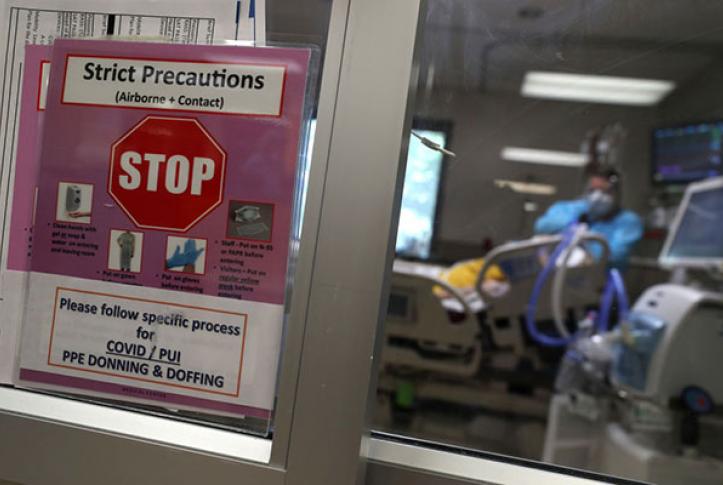The Issue
The coronavirus pandemic has created four interconnected crises that compound and reveal the underlying problems in our health care system. But in doing so, it also has highlighted reforms that could help the way we handle future epidemics and meet the health care needs of all Americans.
The Crises
- Insurance coverage. The sudden surge in unemployment has caused many millions of people to lose job-based health insurance. While some will regain coverage, a significant number will become uninsured. The Affordable Care Act (ACA) can help people who lose job-based insurance, but the federal government has not taken advantage of the law.
- Provider losses. While the coronavirus has increased demand for acute care and overtaxed some hospitals, a steep drop in demand for routine services has reduced providers’ revenue and even threatened the viability of hospitals and practices.
- Racial and ethnic disparities in health care. Blacks constitute 13 percent of the U.S population but account for 20 percent of COVID-19 cases and more than 22 percent of deaths. Latinos account for 18 percent of the population and almost 33 percent of new cases. Our system disproportionately fails to insure and provide access to care for people of color, resulting in higher rates of illness, including COVID-19.
- Public health crisis. The U.S. lacks a functional national system for responding to pandemics and failed to quickly identify and control the spread of coronavirus. Testing was not widely available early on, and we were late to impose physical distancing guidelines. To date, neither of these strategies has been implemented adequately.
We may now have the opportunity to reform a flawed health care system that made the novel coronavirus far more damaging in the United States than it had to be.
The Opportunities
The pandemic may open the way to either major reform or meaningful incremental changes. These could include:
- Building on and fully enforcing the ACA, including having the federal government cover the full costs of expanding Medicaid eligibility and enhancing subsidies for marketplace coverage.
- Moving toward alternative payment models like capitation to help ensure a predictable stream of revenue to providers that isn’t linked to the volume of services delivered.
- Addressing inequities in health care by continuing to expand access to coverage, supporting safety-net facilities and small community providers, and requiring that health professionals attend antibias training.
- Improving our public health response by rigorously testing, contact-tracing, and isolating infected people.
- Passing federal legislation that would: establish a national public health information system with real-time data on disease prevalence; expand federal funding for developing and distributing new diagnostic tests, treatments, and vaccines; require states to adopt measures to contain the spread of infection; and allow licensed health professionals to participate in cross-state telemedicine.
